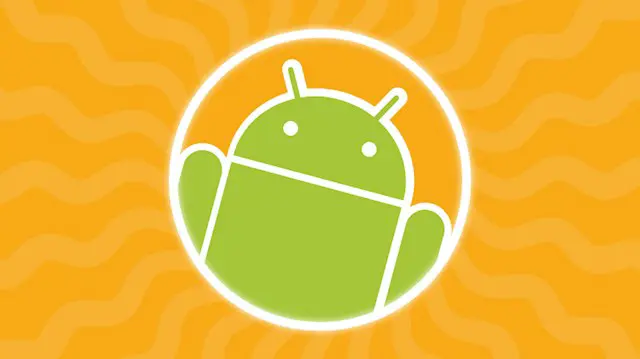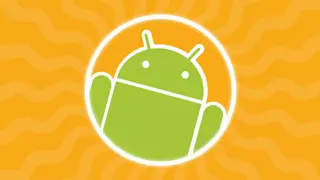
Android App Development with Android Studio | Android
Android App Development with Android Studio, build Android 12 different apps, learn android, android development
Oak Academy
Summary
- Reed courses certificate of completion - Free
Add to basket or enquire
Overview
Welcome to the Android App Development with Android Studio | Android course.
Android App Development with Android Studio, build Android 12 different apps, learn android, android development
Due to its open-source nature, working with the Android platform necessitates constantly learning about the Android platform. My android development course on keeps you ahead of this learning curve, with hands-on lectures on Android operating systems and more.
With the Android mobile application course, you will learn to write applications for Android from scratch with examples.
The Android platform is increasingly popular with developers and a dominant force in the global smartphone market. As more businesses develop mobile apps for customer engagement, Android development skills are likely to stay in high demand.
Is Kotlin or Java better for Android Development?
If you are building new Android apps, Kotlin is better suited because it is the recommended programming language for Android. If you are a first-time programmer, Kotlin android is also a better choice as it has safety features and concise syntax that will help you focus on learning core program fundamentals. You should note that in some cases, employers may seek out Android developers that have Java programming skills. For example, if you plan on joining an organization that already has an Android app, they may already be using Java. If they already have an app written in Java, it is unlikely they will want to redesign the app in a different language, such as android kotlin. Therefore, you should look at the job requirements to see if the job posting you are interested in lists Java as a required skill.
In this course you will learn;
-
Android Environment Setup - Download, install and configure the necessary software
-
Creating a New Project
-
Android Studio
-
Android Components
-
Components and Life Cycles
-
Publishing Your App on Google Play and more
-
You will reinforce your existing android information by applying.
-
You will learn to develop games using Android Studio
-
You will learn to develop applications by getting real-time data from the Internet.
-
Using SQLite database, you will understand how to work with external databases
-
You will be able to develop applications with powerful architecture using Architecture Components (ViewModel, LiveData, Room).
-
You will learn how to make a messaging app using Firebase.
-
With Firebase, you will be able to develop real-time applications
-
You will be able to develop user-friendly interfaces using Material Design principles and components.
-
You will be able to develop modern Android apps.
Why would you want to take this course?
Our answer is simple: The quality of teaching.
OAK Academy based in London is an online education company. OAK Academy gives education in the field of IT, Software, Design, development in Turkish, English, Portuguese, Spanish, and a lot of different language on platform where it has over 1000 hours of video education lessons. OAK Academy both increase its education series number by publishing new courses, and it makes students aware of all the innovations of already published courses by upgrading.
When you enroll, you will feel the OAK Academy`s seasoned developers' expertise.
This course will take you from a beginner to a more experienced level.
We will take you from beginner to advance level. You will learn step-by-step with hands-on demonstrations.
Fresh Content
It’s no secret how technology is advancing at a rapid rate. New tools are released every day, Google updates Android and it’s crucial to stay on top of the latest knowledge. With this course, you will always have a chance to follow the latest trends.
You'll also get:
-
Lifetime Access to The Course
-
Fast & Friendly Support in the Q&A section
Dive in now Android App Development with Android Studio | Android course
We offer full support, answering any questions.
Certificates
Reed courses certificate of completion
Digital certificate - Included
Will be downloadable when all lectures have been completed
Curriculum
-
Course Intro 01:14
-
Introduction to Android App Development 29:14
-
Android Studio Interface 1:27:04
-
Components of Android 1:48:20
-
User Interactions 20:14
-
Lists & Views 3:36:02
-
Components and LifeCycles 1:46:11
-
Shared Preferences and data Saving 33:21
-
Device Compatibility 54:19
-
Android Project 1 31:28
-
Publishing Your App on Google Play 37:53
-
Android Project 2 1:21:58
-
Project 3: Calculator Application 1:16:38
-
Project 4: Number Guessing Game in Android 54:47
-
Project 5: Flag Quiz to Android 1:27:04
-
Project 6: Photo Album Application in Android 2:05:01
-
Project 7: Chat Application to Android 2:31:36
-
Project 8: Weather Application 1:16:38
-
Project 9: MP3 Player Application 1:41:54
-
Project 10: The Ballon Burst Game 1:17:27
-
Project 11: The Android Game:Help the Innocent Bird 2:31:13
-
Project 12: The Information Book 2:38:25
-
Git and Github 2:01:58
Course media
Description
Welcome to the Android App Development with Android Studio | Android course.
Android App Development with Android Studio, build Android 12 different apps, learn android, android development
Due to its open-source nature, working with the Android platform necessitates constantly learning about the Android platform. My android development course on keeps you ahead of this learning curve, with hands-on lectures on Android operating systems and more.
With the Android mobile application course, you will learn to write applications for Android from scratch with examples.
The Android platform is increasingly popular with developers and a dominant force in the global smartphone market. As more businesses develop mobile apps for customer engagement, Android development skills are likely to stay in high demand.
Is Kotlin or Java better for Android Development?
If you are building new Android apps, Kotlin is better suited because it is the recommended programming language for Android. If you are a first-time programmer, Kotlin android is also a better choice as it has safety features and concise syntax that will help you focus on learning core program fundamentals. You should note that in some cases, employers may seek out Android developers that have Java programming skills. For example, if you plan on joining an organization that already has an Android app, they may already be using Java. If they already have an app written in Java, it is unlikely they will want to redesign the app in a different language, such as android kotlin. Therefore, you should look at the job requirements to see if the job posting you are interested in lists Java as a required skill.
In this course you will learn;
-
Android Environment Setup - Download, install and configure the necessary software
-
Creating a New Project
-
Android Studio
-
Android Components
-
Components and Life Cycles
-
Publishing Your App on Google Play and more
-
You will reinforce your existing android information by applying.
-
You will learn to develop games using Android Studio
-
You will learn to develop applications by getting real-time data from the Internet.
-
Using SQLite database, you will understand how to work with external databases
-
You will be able to develop applications with powerful architecture using Architecture Components (ViewModel, LiveData, Room).
-
You will learn how to make a messaging app using Firebase.
-
With Firebase, you will be able to develop real-time applications
-
You will be able to develop user-friendly interfaces using Material Design principles and components.
-
You will be able to develop modern Android apps.
Why would you want to take this course?
Our answer is simple: The quality of teaching.
OAK Academy based in London is an online education company. OAK Academy gives education in the field of IT, Software, Design, development in Turkish, English, Portuguese, Spanish, and a lot of different language on platform where it has over 1000 hours of video education lessons. OAK Academy both increase its education series number by publishing new courses, and it makes students aware of all the innovations of already published courses by upgrading.
When you enroll, you will feel the OAK Academy`s seasoned developers' expertise.
This course will take you from a beginner to a more experienced level.
We will take you from beginner to advance level. You will learn step-by-step with hands-on demonstrations.
Fresh Content
It’s no secret how technology is advancing at a rapid rate. New tools are released every day, Google updates Android and it’s crucial to stay on top of the latest knowledge. With this course, you will always have a chance to follow the latest trends.
You'll also get:
-
Lifetime Access to The Course
-
Fast & Friendly Support in the Q&A section
Dive in now Android App Development with Android Studio | Android course
We offer full support, answering any questions.
Who is this course for?
- Those who want to develop an Android mobile application
- Who wants to improve their existing android knowledge
- Those who want to develop applications using the Java programming language
- Those who want to develop modern applications and applications with a user-friendly interface
- Those who want to develop applications with Firebase Real-Time Database, Architectural Components (View Model, Live Data, Room) and SQLite.
- Those who are curious about the Android Mobile game World
- Those who want to improve their application development skills using Android studio and java programming language
- A total beginner, with a curious mind and wants to be an app develope
- Anyone planning a job transformation and wants to become a Android developer
- Anyone who wants to learn to Android code
- Programmers who are interested in building Android apps
- Anyone who wants to create Android Applications
- Anyone who wants to learn Android 11 ( Android R )
- Anyone who become an android developer from scratch
Requirements
- No prior knowledge is required for Android Development
- No Android coding knowledge required!
- To have basic Android and Java Programming knowledge
- Having a working computer and internet
- Watching the course videos completely, to the end and in order
- Determination to learn and patience
- Desire to learn Android Application Development
- Nothing else! It’s just you, your computer and your ambition to get started today
Questions and answers
Currently there are no Q&As for this course. Be the first to ask a question.
Reviews
Currently there are no reviews for this course. Be the first to leave a review.
Legal information
This course is advertised on reed.co.uk by the Course Provider, whose terms and conditions apply. Purchases are made directly from the Course Provider, and as such, content and materials are supplied by the Course Provider directly. Reed is acting as agent and not reseller in relation to this course. Reed's only responsibility is to facilitate your payment for the course. It is your responsibility to review and agree to the Course Provider's terms and conditions and satisfy yourself as to the suitability of the course you intend to purchase. Reed will not have any responsibility for the content of the course and/or associated materials.


